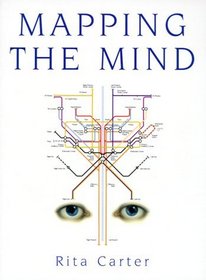Scholarly look at modern brain research.
Search -
Mapping the Mind
Mapping the Mind
Author:
Today a brain scan reveals our thoughts, moods, and memories as clearly as an X-ray reveals our bones. We can actually observe a person's brain registering a joke or experiencing a painful memory. Drawing on the latest imaging technology and the expertise of distinguished scientists, Rita Carter explores the geography of the human brain. Her... more »
Author:
Today a brain scan reveals our thoughts, moods, and memories as clearly as an X-ray reveals our bones. We can actually observe a person's brain registering a joke or experiencing a painful memory. Drawing on the latest imaging technology and the expertise of distinguished scientists, Rita Carter explores the geography of the human brain. Her... more »
ISBN-13: 9780520224612
ISBN-10: 0520224612
Publication Date: 2/1/2000
Pages: 224
Rating: 2
ISBN-10: 0520224612
Publication Date: 2/1/2000
Pages: 224
Rating: 2
4 stars, based on 2 ratings
Publisher: University of California Press
Book Type: Paperback
Other Versions: Hardcover
Members Wishing: 0
Reviews: Member | Amazon | Write a Review
Book Type: Paperback
Other Versions: Hardcover
Members Wishing: 0
Reviews: Member | Amazon | Write a Review
Please Log in to Rate these Book Reviews
Genres:
- Health, Fitness & Dieting >> Psychology & Counseling >> Neuropsychology
- Science & Math >> Behavioral Sciences >> Behavioral Psychology
- Medicine >> Internal Medicine >> Neurology >> Neuroscience
- Medical Books >> Medicine >> Internal Medicine >> Neurology




